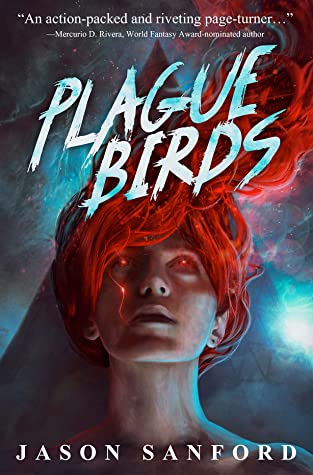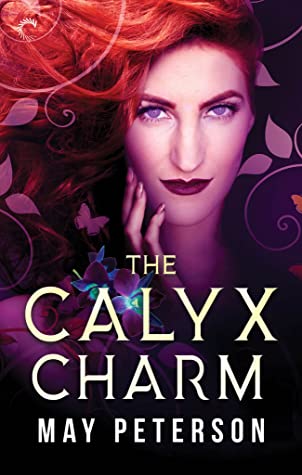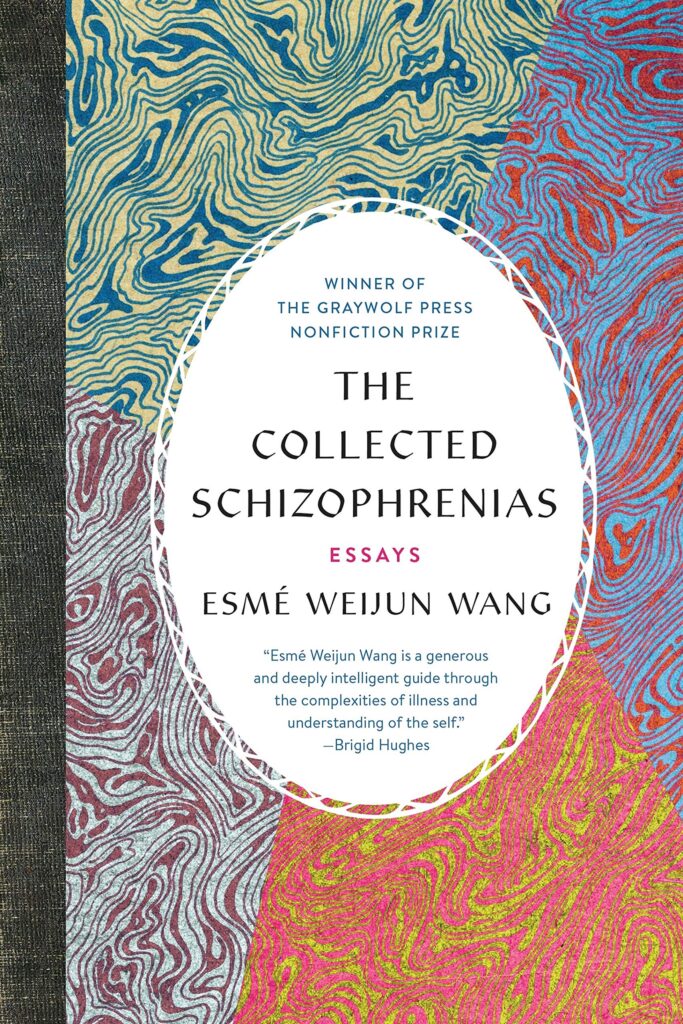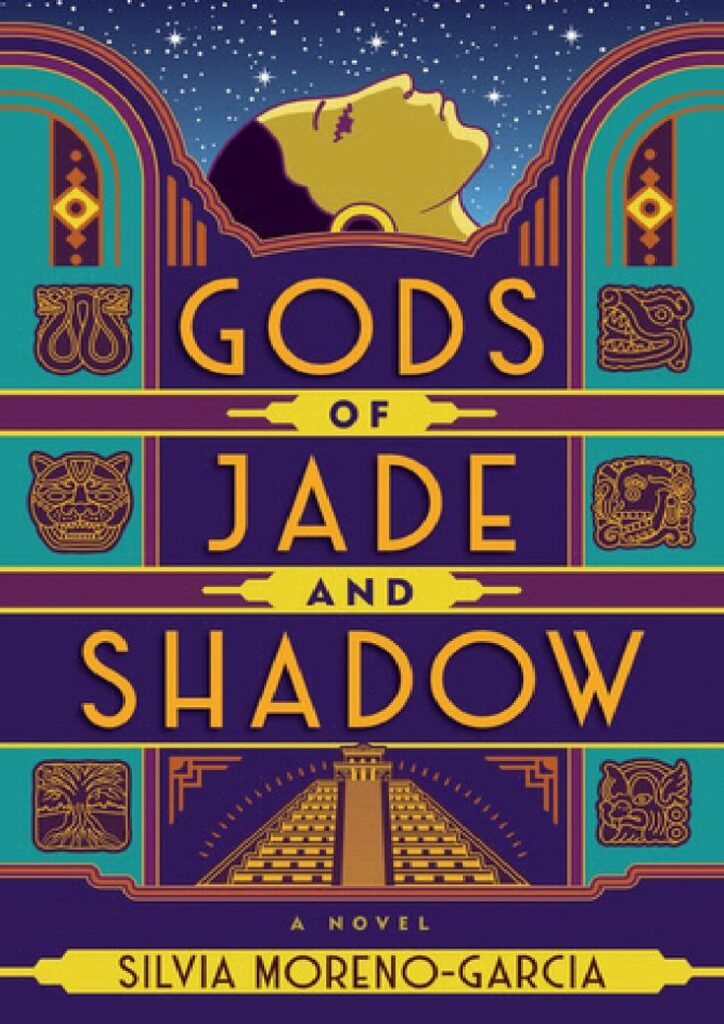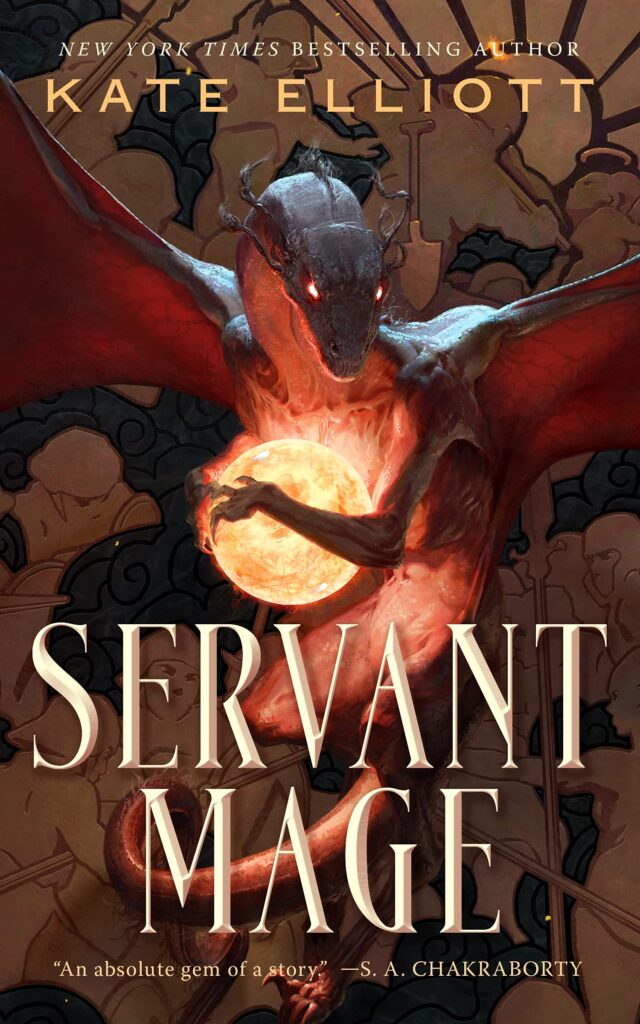
Genre: Fantasy
Audience: Adult
Series?: Standalone
Rating: Loved it!
For fans of: Cold Magic, The Bone Witch, Shadow and Bone, fantasy maps, magic systems that would be really easy to incorporate into TTRPGs, PWP but instead of porn it’s worldbuilding
I’m a big Kate Elliott fan, so I was thrilled to get the opportunity to review one of her books. I devoured the whole thing in a single day and immediately logged onto Goodreads and gave it five out of five stars. While I was there, I noticed the average star rating was lower than expected, so I did something I promised myself I’d stop doing and took a peek at some of the other reviews.

Oh … those are good points … Well, I didn’t feel that way. I really enjoyed Servant Mage! Kate Elliott is such a good writer!
Friends, it has only been about week since I finished this book, and I had to go back to my Kindle highlights to remember anything about it. I didn’t retain the main character’s name. I didn’t retain any of the major plot beats. All I had was a mental image of a walled courtyard.
I’m not going to revise my rating because I have deliberately chosen a rating system that catalogues how I feel about a book when I finish it, rather than what I think about a book. What I think now is that Kate Elliott is such a strong writer that she can sell almost any story, even if the plot is wobbly and the ending is hanging on by a single rusted hinge. But I clearly felt like it was a good time, and that’s all the counts in these parts.
To the walled courtyard!
Since the revolution, Fellion’s country has regarded mages as a communal resource. The Liberationist Council government removes young magic users from their families, subjects them to horrific conditions in training camps, and then forces them to labor as “indentured servants” for various people and businesses. The justifying ideology is partially about using their powers for the common good, partially about controlling the symbiotic wraiths that give them their powers, but seems primarily to be a response to the high esteem they enjoyed under the Monarchist government.
Fellion is indentured to a hotel. In addition to using her fire magic to provide warmth and light for the wealthy patrons, Fellion scrubs the outhouses on her hands and knees. Because the latter task is gross, she can usually depend on the courtyard around the outhouses to be empty while she’s supposed to be cleaning them, and Fellion uses those daily moments of privacy to teach other servants to read.
I wanted more of these lessons. Narratively, their purpose is to establish Fellion as someone who is willing to risk her safety and freedom to do what is right, and also to introduce her backstory. Fellion’s mother and “older father” (Three-parent families seem to be the norm in this world.) were executed by the Liberationists for writing and distributing seditious materials.
However, after half a lesson at the beginning of the book, Fellion’s students exit the narrative entirely. I wanted more of a payoff for them. Thematically, I think it would make sense for Fellion’s relationships with other servants to play a role in the resolution, but they’re really just there as setup.
Her first on-page lesson is interrupted by an air “Adept, a mage whose gift was not commonplace as most were but superior and thus laudable and demanding of the highest respect.” He offers to pay her well for a job whose parameters he refuses to define. A job Fellion immediately realizes must be illicit:
“Because you made me an offer. If you were working on the orders of the Liberationist Council you’d have marched in and handed a transfer license to my boss to take control of my indenture. So I’m guessing this is something you’re doing for yourself. Or maybe on hire for someone you can’t refuse …”
However, Fellion’s desperate to escape indenture, and the Adept can not only pay her well but also provide her with a travel permit, so she accepts.
She and the Adept join up with three other mages: earth, water, and aether. Fellion’s a little scandalized. The Liberationist Council has banned “five arrow quivers” (groups of one of each kind of mage), though she doesn’t know why.
Fellion knows there are Monarchist rebels trapped beneath the Iron Hills. At first, the quiver seems to be headed in that direction. She surmises:
“… Maybe you’re out of oil and need Lamps to help guide people out. Folk are calling it the last stand of the Monarchists. But that fight was already lost … My grandmother used to say Monarchist rebels are a twitching corpse that hasn’t realized it’s dead. Even if they were to win, which they can’t, it’s over for them … No royal child of the dragon lineage has been born in the years since.”
The words are barely out of her mouth before the group gets word that a dragon-born child has “fallen into the world.” The group rushes off to try to save the child before the Liberationist Council can find and kill her.
Traveling with the Monarchist rebels, Fellion gradually learns everything she knows about magic and the history of the revolution is a deliberate lie crafted to support Liberationist rule. As a reader, I found myself reluctantly beginning to side with the Monarchists. They feed, bathe, and clothe Fellion more generously than she has been since she was stolen from her family as a child. They seem genuinely grieved by her trauma. They’re gentle with her, and when they realize they’re in immediate danger, they give her the option to set out on her own rather than face it with her.
Only it’s a false choice. Fellion is unlikely to survive extended travel on her own.
Worse, the Monarchists don’t seem to realize it’s a false choice. They think very highly of themselves for treating Fellion better than the Liberationists, but they still maintain a rigid class-based hierarchy. They treat Fellion almost as an equal on the road, but as soon as they get to a Monarchist settlement, she’s forced to eat and sleep apart from the noble members of her group. They expect her to be grateful for it.
This is reassuring, right? It’s 2021. We don’t need books that justify rule by birthright.
Unfortunately, even though it’s ethically the right decision, it made the ending less satisfying than it could have been. Fellion spends most of her journey with people who are somewhat kinder to her than the people she escaped from but still aren’t her friend, which means she isn’t able to develop any significant relationships. Not with her fellow servants, not with the rebels, and not with the family she might hopefully find again someday.
Which is not to say the ending is unsatisfying. Fellion’s arc is lovely. She really comes into her own and chooses a path that’s in harmony with her family’s values and her own lived experiences. In the final pages, I was filled with a sense of hope and excitement for what comes next. I did immediately rate it five stars, after all.
Unfortunately, right now it seems like what comes next is nothing. This feels like a really good prequel to a really great epic fantasy trilogy, but it’s a standalone. I can understand why that information might make someone choose to mark it down, but instead I’m going to choose to hope that enough positive reviews will inspire Tor to give Kate Elliott a three-book contract to continue the series.
Please?
Disclosure
I received a free ARC from NetGalley in exchange for an honest review.
Can you do me a favor?
If you like this review, please like it on Goodreads and maybe follow me there.
More Info
Publisher: Tordotcom
eBook Page Count: 176
Kate Elliott is on Twitter.
All the preorder links for Servant Mage are on Tordotcom’s website.




